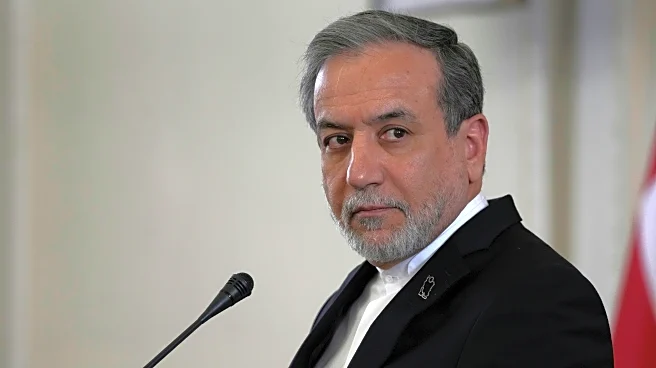What's Happening?
Takeda, a Japanese pharmaceutical company, has decided to terminate its cell therapy programs, marking a significant shift in its strategic focus. The company had been actively involved in cell therapy since at least 2017, with investments and acquisitions aimed at advancing its capabilities in this area. Notably, Takeda acquired GammaDelta Therapeutics and Maverick Therapeutics, the latter for $525 million, to enhance its cell therapy portfolio. Despite these efforts, Takeda recently announced the termination of its Maverick assets, incurring a $95 million impairment charge. Subsequently, the company decided to abandon its cell therapy initiatives altogether, resulting in an additional charge of approximately $384.6 million. Takeda will now concentrate on developing small molecules, biologics, and antibody-drug conjugates, moving away from its previous focus on cell therapy.
Why It's Important?
Takeda's decision to exit the cell therapy sector is significant for the pharmaceutical industry, particularly in the realm of cancer treatment. Cell therapy has been seen as a promising avenue for developing targeted cancer treatments, leveraging patients' own cells to fight the disease. Takeda's withdrawal may impact the pace of innovation in this field, as the company was a major player with substantial investments. This shift could influence other companies to reassess their strategies in cell therapy, potentially slowing down advancements in this area. On the other hand, Takeda's focus on small molecules and biologics may lead to new developments in these more traditional modalities, potentially offering different therapeutic options for patients.
What's Next?
Following its decision to abandon cell therapy, Takeda is expected to redirect its resources and research efforts towards small molecules, biologics, and antibody-drug conjugates. This strategic pivot may involve new partnerships, acquisitions, or internal development programs to strengthen its capabilities in these areas. The pharmaceutical industry will likely monitor Takeda's progress closely, as its success or challenges in these new focus areas could influence broader industry trends. Stakeholders, including investors and healthcare providers, will be keen to see how Takeda's shift impacts its financial performance and its ability to deliver innovative treatments.
Beyond the Headlines
Takeda's exit from cell therapy raises questions about the viability and challenges of developing such treatments. Ethical considerations around the use of cell therapy, including patient safety and the complexity of manufacturing, may have influenced Takeda's decision. Additionally, the financial implications of investing in high-risk, high-reward areas like cell therapy could prompt other companies to evaluate the balance between innovation and financial sustainability. This development may also lead to discussions about the future of personalized medicine and the role of large pharmaceutical companies in driving advancements in this field.










